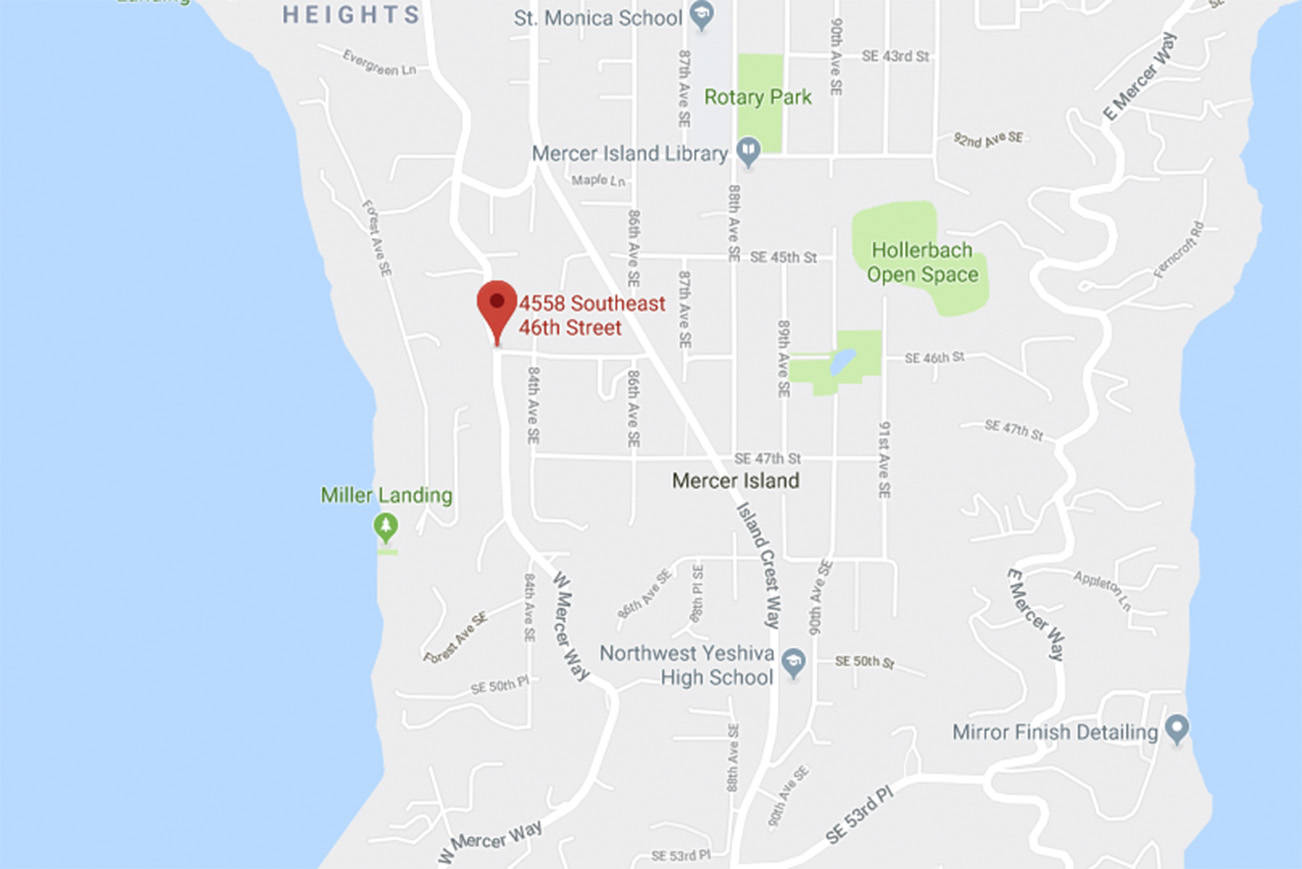Some Mercer Island residents have joined together in an effort to curb small cell installations and a new cell tower at 4558 46th St. Southeast. It would be installed near Ellis Pond, and adjacent to a cluster of locals who make up “Neighbors Against Pole Pollution.”
The organizer behind the effort and 13-year resident Kevin Chester lives in a neighborhood situated in a cul-de-sac, free of power lines and lights. He learned of the proposed tower from a posted sign about the proposed land use.
“It’s insensitive and invasive in the context of our neighborhood, and shocking to see such a thing,” Chester said. “My concern is that the gold rush of 5G is potentially trampling over the long-term quality, character and aesthetic of Mercer Island.”
In a letter from Bricklin and Newman LLP, attorneys with environmental considerations, the group’s environmental and aesthetic concerns with the new tower were outlined. The law firm wrote that the new tower application does not take city code into account and the planned tower could fall within the critical area boundaries that surround Ellis Pond.
“Our understanding is that Ellis Pond, a short distance westerly of the proposed location, is itself a critical area and the limit of the Ellis Pond critical area may extend beyond the shore of the pond in the form of adjacent wetlands,” the letter to the city states. And the attorneys argue there has been no evidence that the applicant submitted a wetland delineation report, one necessary in preventing harm.
“Without preparing a wetlands delineation, it is impossible for the applicant to assess and mitigate impacts to critical areas, or to ensure that the proposed tower is not located within the buffer of a wetland,” the letter states.
Of the 46 submitted cell applications, 42 are planned to be installed on existing utility poles and two are proposed to be fixed to new steel lighted towers, the letter notes. All of those are within the public right-of-way.
The open comment period on proposed Verizon small cell installations ended on July 17, and most of the citizen comments have come from residents opposed to the proposed Ellis Pond location, according to the city of Mercer Island.
Other public comments were made by residents with noise and aesthetic concerns. Others feared the health impacts of RF waves emitted from the equipment. One resident already had a small cell placed behind their home. Another was planned to be installed in the front.
What concerns them are the small cell telecommunication companies’ use to extend wireless service coverage and to increase network capacity.
T-Mobile submitted an application for 39 small cell antennas in 2016. The antennas were installed during 2017 and 2018. This year, more small cell antenna applications have come in, this time it’s Verizon that’s intending to plant 46 small cell antennas around Mercer Island.
Crown Castle filed the applications on behalf of both T-Mobile and Verizon. And according to a map on the business’s website, Crown Castle has helped implement small cells in 700 U.S. communities, including Seattle and Bellevue.
The city of Mercer Island has adopted interim standards in an effort to minimize aesthetic impacts, and it plans to adopt permanent standards and limits on noise, requiring undergrounding of power, creating incentives for co-location and adding a requirement that says hollow poles with internal equipment and antenna mounts will be discussed by the Planning Commision and city council more fully.
While citizen concerns were received on the proposed small cell locations, a rule approved by the Federal Communications Commission last fall prohibits city control on preventing the cell installations. It’s led to an appeal filed by cities including Bellevue, Portland and Los Angeles. There’s been little movement on the challenge.
The FCC rule was an “important step in its ongoing efforts to remove regulatory barriers that inhibit the deployment necessary for 5G and other advanced wireless services,” the FCC said in its announcement on the change. And the action “underscores the FCC’s commitment to ensuring that the U.S. wins the global race to 5G.”
Winning “the global race” would lead to more jobs, according to the Cellular Telecommunications and Internet Association (CITA), a trade association that represents the U.S. wireless communications industry. And being first matters, they said, and can dictate capital that would flow here.
Now the city plans to share residents’ concerns and comments they’ve received with the permit applicant Crown Castle.
“The city is doing what we can to support MI residents, and our goal is to try to address the community’s concerns with the permit applicant, Crown Castle,” city ombudsman Alison VanGorp said.
But Chester fears if enough isn’t done, it can set a precedent for new towers down the road.
“While this is a real concern for our neighborhood, it’s also a real concern for neighborhoods beyond ours and for Mercer Island beyond all,” he said, “It’s a gross example of what a utility or telecom can do — If they can do it in this neighborhood, they can do it basically anywhere in the island.”


